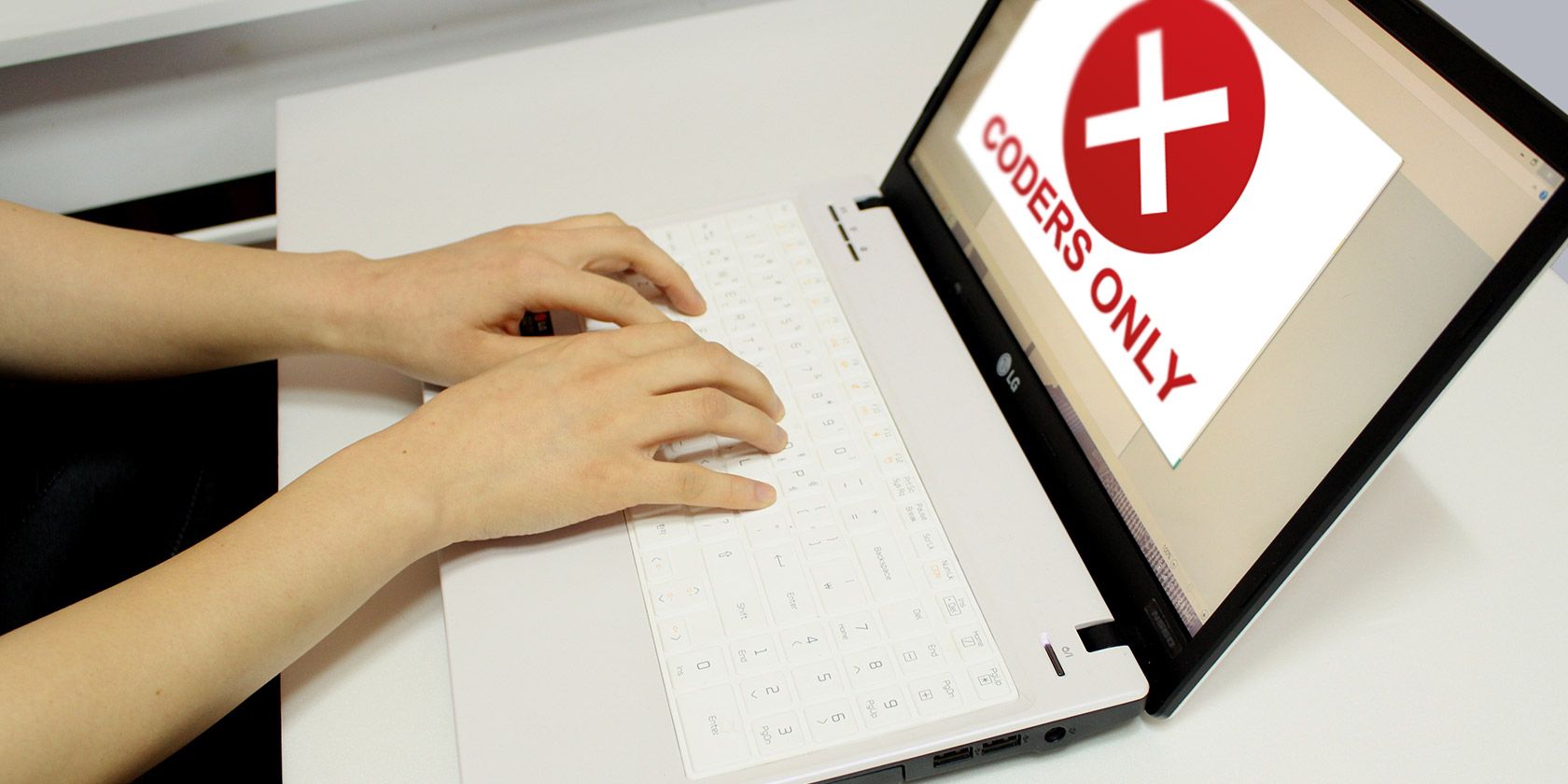6 Signs You Aren’t Meant to Be a Programmer

Tech is the industry to be in right now. So many young people make careers in tech their ultimate goal. Many of them make it, only to realize that their hearts lie elsewhere.
Is programming right for me? Will I like coding? Asking yourself these questions and answering them honestly may have you thinking twice. The reality: some people just hate coding.
If you’re unsure whether or not you’re meant to be a programmer, here are six signs that may indicate a bad fit.
1. You Lack Experimental Creativity
Despite its foundation in logic, programming is very much a creative art. A new program is like a blank canvas. Your paintbrushes and palette of colors are languages, frameworks, and libraries. You need a vision for your creation and the creativity to bring that vision to life.
Coding purists will tell you that there’s only one way to write good code, which is far from the case. That’s like saying there’s only one way to build a house, write a novel, or bake a cake. There are many ways to code software; you should be willing to experiment.
Without a natural sense of curiosity, you’ll develop tunnel vision. You’ll have a hard time coming up with new ideas. At that point, programming becomes mundane work and loses the spark of excitement that likely drew you to tech in the first place.
2. You Aren’t Independently Driven
You won’t be successful in anything unless you’re incredibly driven. That’s a universal truth, but it’s especially true in programming.
A good programmer is able to motivate themselves. Peel back all of the other layers; programming, just like any trade, is fundamentally repetitive. If you have trouble investing yourself in the type of work that being a developer demands, you’re going to struggle and will likely burnout.
You have to be able to solve problems using your own initiative. A lot of new problems will resemble the problems from last week. A plumber doesn’t ask for a new type of sink to fix when he shows up at a client’s house. They just solve the problem and prepare themselves for the next one.
Because of this, the solutions to some problems are found through others. Experienced programmers become a treasure trove of knowledge over time. You have to be passionate in your drive to seek these recurrences and patterns out at every opportunity. Tomorrow, things will be easier as a direct result.
3. You Can’t Stand Logic Problems
It’s a common misconception that you have to be a mathematical genius to understand programming. You aren’t at a disadvantage if you weren’t an A+ student in school. You do, however, need the ability to solve problems using logical, algorithmic thinking.
Do you have a natural fascination with puzzles? Are you inquisitive and eager to learn why our digital world works the way it does? If not, you’re going to find yourself frustrated when you run into these pillars of the craft. They should intrigue you. If they don’t, you may want to reconsider.
Much of the intellectual payoff that programming offers comes from solving a puzzle. The more complicated the puzzle is, the more rewarding it feels when you finally crack it. If this feeling doesn’t light your fire, programming will be nothing more than an endless parade of frustration and disappointment.
4. You Aren’t a Fan of Doing Research
No matter how much you know about coding, you’re always going to run into uncharted territory. Perhaps you’re working on a web app and you can’t quite get a framework to cooperate. Maybe you’ve been tasked with a project in Python after spending 10 years mastering Java.
How do you overcome these challenges? There’s no master handbook to pop open; the answers must be sought after of your own volition. All you have is code documentation, Google, and the drive to ask the right questions.
If you’re not comfortable getting down into the weeds, you won’t thrive in a career in programming. It’s not always the brainiest developers who end up being the most successful. It’s the ones who understand how to break down problems and build the pieces back up into solutions.
5. You Prefer Normal Work Hours
Programming jobs are flexible. Some jobs in tech will have you work on-site, in an office. Some allow you to work remotely. You can work for a start-up as a freelancer to pave your own path or you can choose a FAANG company for a more traditional corporate career.
In either case, a successful programmer needs to be dedicated. It’s not uncommon to hear stories of late nights, long coding sessions, and a diminished work-life balance in either scenario. Software development comes rife with strict deadlines; meeting these deadlines isn’t always possible if you’re dying to hit the road by five PM. To get all of the necessary work done, developers often invest plenty of personal time into their work. Even freelancers have to grind through long hours to stay ahead of the competition.
And, when you finally get off the clock? It can be hard to disconnect yourself from your work; you’ll likely face long nights lying down for bed, your brain rattling off syntax and possible workarounds. Coding is a labor of love. How to know if programming is for you: you enjoy the feeling of this constant companion, even when you’re supposed to be sleeping.
6. You Are Solely Focused on Salary
Programming can provide a good living, let’s be honest. Perhaps you were skimming job sites and were taken aback by what all of the top companies in the industry lure entry-level developers in with. You’re not the first, and won’t be the last, to try your hand at coding in order to earn your slice of the pie.
As the market becomes saturated, you’ll need to invest in yourself continuously in order to remain competitive enough to shine. A four-year degree is often (though not always) required, with master’s degrees becoming increasingly common.
Can you make a lot of money as a programmer? Sure, but it won’t be an easy road. If you’re looking to get rich quickly, you might as well play the lottery.
I Don’t Like Coding. What Should I Do?
The truth? Work is work, no matter what your trade happens to be. Is programming for everyone? Not exactly. One boring afternoon at your computer shouldn’t be enough to turn you off for life, however.
You shouldn’t give up before you’ve given coding an honest effort. The best way to find out if coding is right for you is to jump right in and try. Learn how to script, learn a language, learn from programming books. Anything that broadens your understanding of the craft will help you decide one way or another. It takes a lot of time.
The good news: there are so many niche opportunities in tech if you’re adamant about finding a career that you enjoy. Even if you’ve already got the degree, there are plenty of non-programming jobs for computer science graduates that you can look into. What are your options? There are more than a few ways that you can put your knowledge to good use.
Coding Is Not for Everyone
While anyone can learn how to write code, that’s not the same as enjoying a long career doing something you feel like you were made for. It’s entirely possible to be a talented developer and still not find a perfect fit.
If you have a heart for business but want to remain connected to the software industry, you’ll always be able to find a place in tech to learn and grow. In our bustling world, leaders who understand the intricate process of programming are always in high demand.
Read Next
About The Author






